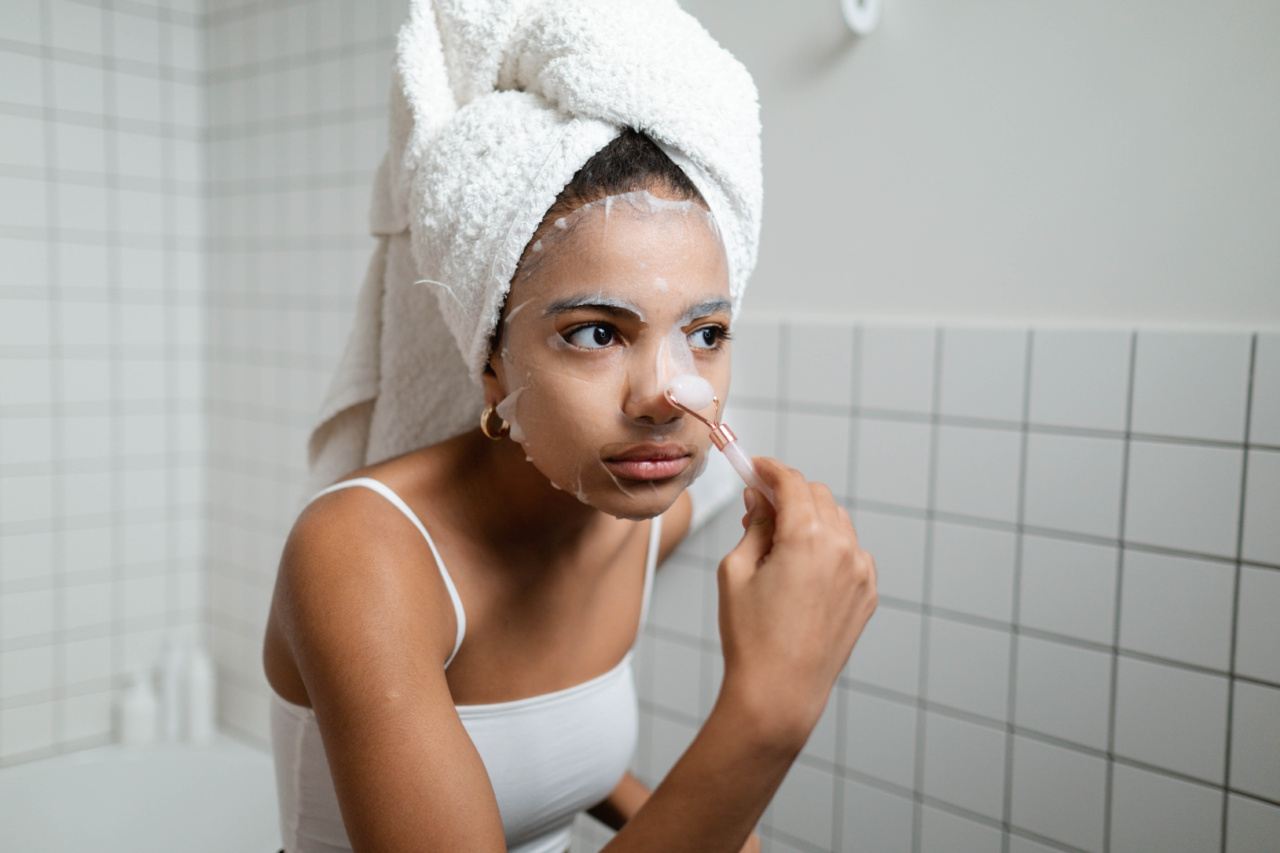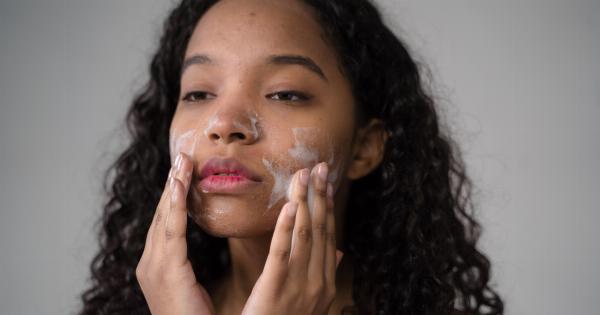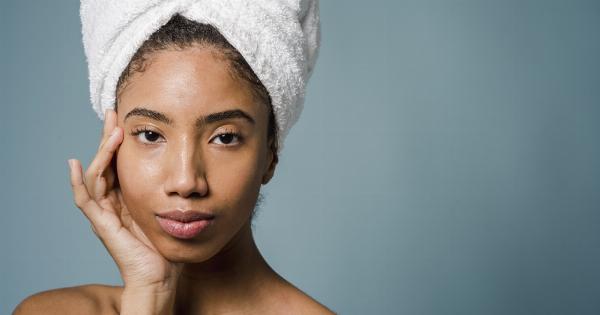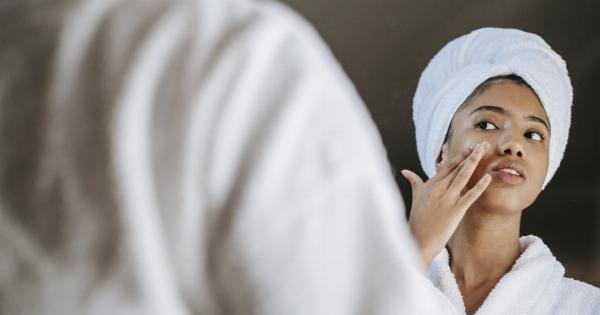When it comes to skincare, there are countless products on the market promising to help keep your skin youthful and glowing. From serums to creams, it can be overwhelming to navigate through the options.
However, one product that often gets overlooked is shower gel. While shower gel is primarily used for cleansing our bodies, it can also play a significant role in maintaining and improving the health of our skin. In this article, we will explore the secret to keeping your skin young with shower gel.
Understanding the Importance of pH Balance
Before diving into the benefits of shower gel for your skin, it’s essential to understand the importance of pH balance. Our skin naturally has a slightly acidic pH, ranging between 4.5 and 5.5.
This acidic barrier helps protect our skin from various harmful elements, such as bacteria and environmental factors. It also maintains the moisture balance of our skin, keeping it hydrated and supple.
Choosing the Right Shower Gel
When selecting a shower gel for anti-aging and maintaining youthful skin, it’s crucial to choose one that is gentle and pH balanced.
Many shower gels on the market contain harsh chemicals and artificial fragrances that can disrupt the natural pH balance of our skin. Look for shower gels that are specifically formulated with mild cleansing agents and natural ingredients.
Hydrating and Nourishing the Skin
One of the significant benefits of using shower gel is its ability to hydrate and nourish the skin. A good shower gel will contain ingredients such as glycerin, aloe vera, or hyaluronic acid, which help attract and retain moisture in the skin.
Regular use of a hydrating shower gel can significantly improve skin’s elasticity, reducing the appearance of fine lines and wrinkles.
Improving Skin Texture
Another secret to keeping your skin young with shower gel is its ability to improve skin texture. Shower gels with exfoliating properties can help remove dead skin cells, revealing a smoother and brighter complexion.
Look for shower gels that contain gentle exfoliants like alpha-hydroxy acids (AHAs) or fruit enzymes. However, be cautious not to over-exfoliate, as it can lead to skin irritation.
Boosting Collagen Production
Collagen is a vital protein that gives our skin its structure and youthful appearance. As we age, collagen production naturally decreases, leading to sagging, wrinkles, and loss of elasticity.
Certain shower gels contain ingredients like vitamin C, retinol, or peptides that can boost collagen production when used regularly. Incorporating these shower gels into your skincare routine can help maintain a youthful complexion.
Soothing and Calming Effects
Many shower gels also contain botanical extracts and essential oils known for their soothing and calming effects on the skin.
Ingredients like chamomile, lavender, or green tea can help reduce inflammation, redness, and irritation, promoting a more youthful appearance. Showering with a gentle, soothing shower gel can be a relaxing experience, beneficial for both your body and mind.
Enhancing Blood Circulation
Another hidden benefit of shower gel is its ability to enhance blood circulation. When we massage shower gel onto our skin, we stimulate blood flow, which helps deliver necessary nutrients to our skin cells.
Improved blood circulation can result in a healthier complexion and a more youthful glow. Opt for shower gels with invigorating ingredients like menthol or eucalyptus to maximize this benefit.
Preventing Breakouts and Blemishes
Regularly cleansing your skin with a shower gel can also help prevent breakouts and blemishes. By removing dirt, excess oil, and impurities, shower gel helps keep pores clean and clear.
Look for shower gels that are non-comedogenic, meaning they won’t clog your pores. Additionally, shower gels with antibacterial properties, such as tea tree oil or salicylic acid, can help combat acne-causing bacteria.
Improving Overall Skin Health
Keeping your skin young goes beyond just addressing the signs of aging. Shower gel can help improve overall skin health by maintaining proper hydration, promoting a balanced pH, and protecting against environmental aggressors.
By choosing the right shower gel and using it consistently, you can enjoy radiant, healthy skin at any age.
Incorporating Shower Gel into Your Skincare Routine
To make the most of the benefits shower gel offers for youthful skin, it’s essential to incorporate it into your skincare routine correctly. Here are a few tips:.
1. Use lukewarm water: Hot water can strip your skin of essential oils, leading to dryness. Opt for lukewarm water while using shower gel.
2. Massage gently: When applying shower gel to your body, massage it in gentle circular motions. Avoid using excessive pressure, which can irritate the skin.
3. Rinse thoroughly: Make sure to rinse off all the shower gel residue from your body. Leaving any product behind can cause skin irritation or dryness.
4. Follow with a moisturizer: After showering, apply a hydrating lotion or cream to lock in moisture and keep your skin soft and supple.
The Secret to Keeping Your Skin Young
In conclusion, shower gel can be the secret to keeping your skin young and radiant. By choosing a pH-balanced and gentle shower gel, you can effectively hydrate, nourish, and improve the texture of your skin.
Look for shower gels with ingredients that boost collagen production, soothe the skin, and enhance blood circulation. Additionally, regular use of shower gel can help prevent breakouts, while improving overall skin health. Incorporate shower gel into your skincare routine correctly, and enjoy the benefits of youthful and glowing skin.





























